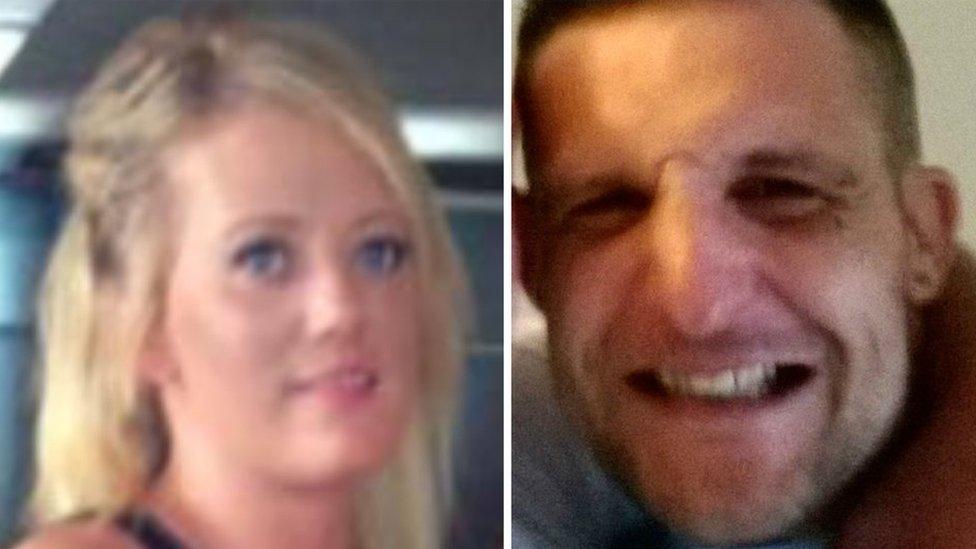Argoed: What led Matthew Williams to kill Cerys Yemm?
- Published

Matthew Williams brutally murdered Cerys Yemm in a sustained and barbaric attack just two weeks after he was freed from jail. But why were no concerns raised about his mental health on his release?
Williams, 34, who had a long history of drug abuse, murdered 22-year-old Ms Yemm in a vicious assault in the bedroom of the hostel he had been housed in the small community of Argoed in the south Wales valleys in November 2014.
Despite previously being treated for schizophrenia, no apparent concerns about his mental health had been raised before or immediately after he was released from jail.
And because he had served his entire prison sentence he was left with little supervision allowing him to make contact with Ms Yemm and to carry out the horrific attack.
The aftermath of his violence was described as a bloodbath by the hostel's owner in a harrowing 999 call to the police.
Williams continued to be aggressive and uncontrollable until he was finally subdued by police who Tasered him four times in an attempt to stop him.
He died soon after.
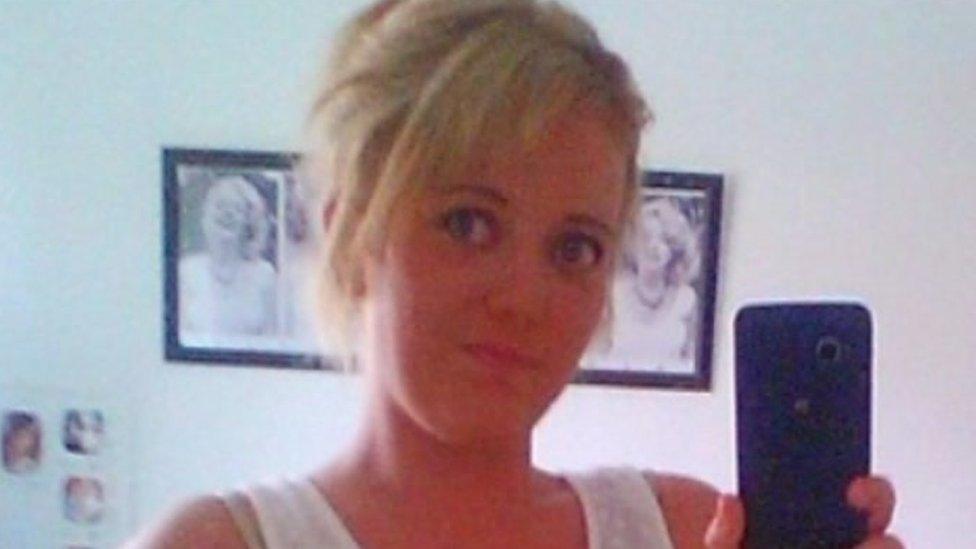
Cerys Marie Yemm was the girlfriend of Williams' former prison friend
So who was Matthew Williams?
The eldest of four brothers, Williams grew up in Blackwood, Caerphilly county, where he lived with both parents until they divorced when he was aged 10.
His life spiralled into a world of drug use and violence.
At the age of 11 he started smoking cannabis, two years later he was expelled from school for fighting and by the age of 15, he had dropped out of the school system altogether.
Despite seeking help for his drug abuse as a teenager, he failed to control his habit and a path of prolific offending followed, resulting in his first custodial sentence in a young offenders' institute at 15.
In total, he notched up 26 convictions for 78 offences, including assault, wounding with intent, drugs and weapons offences.
Forty-one of his crimes resulted in juvenile custodial sentences while 14 others saw him spend time in adult prisons.
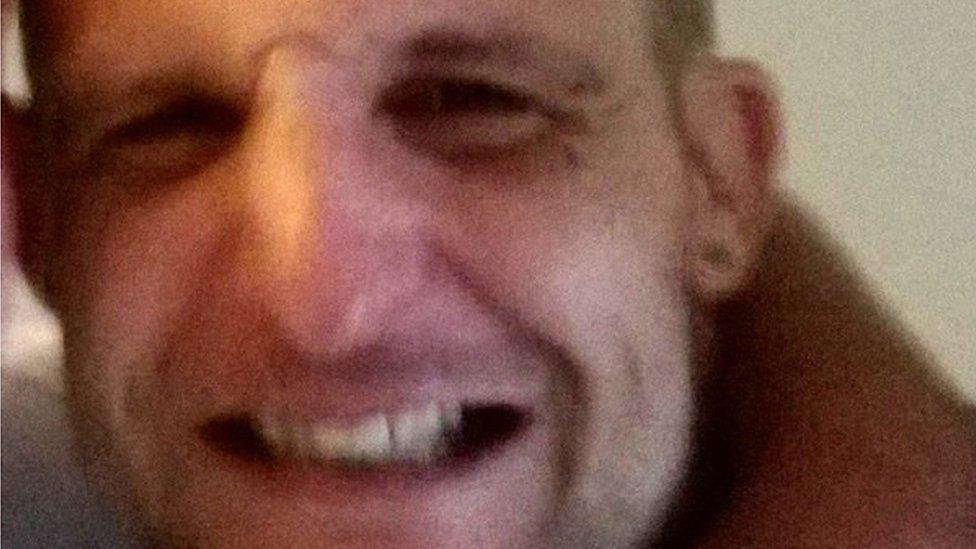
His persistent drug use had led to negative psychological and psychiatric effects, according to a Healthcare inspectorate Wales (HIW) inquiry, external which was carried out following Miss Yemm's murder.
The report detailed how he was first referred to mental health services in April 1997 after being charged with burglary and attempted theft.
But his admission to Ty Sirhowy Acute Mental Health Inpatient Unit in Blackwood was a short one as he broke its drug-free policy and left after being found using cannabis just two-and-half hours after being admitted.
His criminal activity and drug use continued and he spent time in and out of jail.
In 2004, he was diagnosed with schizophrenia, a diagnosis which was later disputed by the HIW report authors and other health professionals who placed much doubt upon it, and he was admitted into a psychiatric unit under the Mental Health Act.
He spent five weeks at the unit until his discharge into care under the Caerphilly-based community mental health team.
But that ended in February 2005 when yet again he was jailed - this time for five years for burglary, theft and wounding offences.
Further burglary offences led to another jail term in 2009. On release he was referred to a community psychiatric nurse but just one year later, the sessions ended because he had not shown any signs of a psychotic illness.
During later prison stays he was prescribed medication after experiencing mental health issues including hearing voices, having hallucinations and paranoid ideas.
But he did not always take his medication - routinely refusing it - claiming he did not want it, saying it caused him side effects and he did not believe it was helping.

Williams was housed at the Sirhowy Arms Hotel after failing to get accommodation in Newport
His prescription was eventually stopped in 2014 after an absence of reported psychotic symptoms and he was reported as functioning well - holding down a job as a prison barber - before his release in October of the same year.
His behaviour in prison in the run up to his release was described as "pleasant, polite" and with a "high level of functioning".
Having served his full 27-month sentence, he was released from HMP Parc without the statutory need for supervision, without medication and without a referral to Caerphilly's community mental health team.
This was done on the agreement he would contact his GP if any mental health problems arose.
He was offered voluntary drugs' misuse, employment and housing support upon release but refused on the grounds he had "had enough of police and probation over the years".
With nowhere to live, he was classed as homeless and he tried to get accommodation in Newport to be near his father.
But he was unsuccessful and was given a room at the Sirhowy Arms Hotel, which had been used as emergency bed and breakfast since 2008.
Once there, he was assessed by homeless charity staff to find out his housing needs. The charity worker said Williams was "quiet, having strange eyes and seemed sad", but concluded, overall, he was "doing very well". Williams failed to contact the charity again.
And others who came into contact with him during the two weeks he was out of prison reported him as being in a low mood and pessimistic about his future, but that he did not display any psychotic symptoms or signs of mental illness.
His GP said he showed no signs of schizophrenia the week before the attack and said he appeared "smart and seemed pretty well".
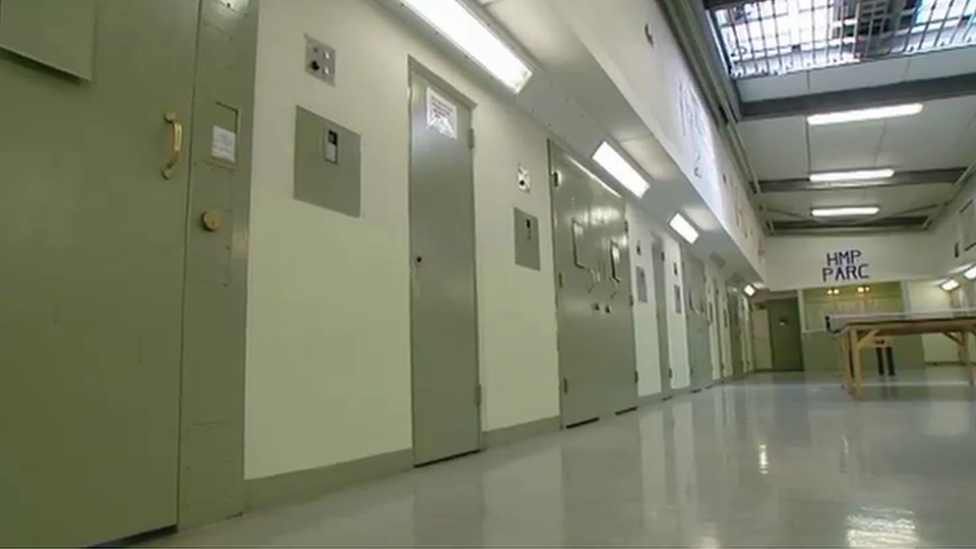
Williams was at Parc Prison in Bridgend before the killing
Yet within two weeks, he had brutally murdered Ms Yemm.
And he died shortly after from a cardiac arrest.
Questions about Williams's diagnoses of schizophrenia in 2004 were investigated by the authors of the HIW report who concluded that although the diagnoses had been made, there was insufficient evidence of such an illness in the years that followed.
That view was supported by a consultant forensic psychiatrist, who treated Williams at Parc prison from February 2014 until his release, telling the inquest how he was "clear it was not schizophrenia".
He said Williams was released without medication, concluding that his past psychotic symptoms were "most likely" drug induced.
He agreed Williams's symptoms were likely to return if he started using drugs again and said anti-psychotic medication prescribed for schizophrenia would have had "unpredictable outcomes" if Williams had taken them at the same time as illegal drugs.
That view was supported by the HIW report authors who concluded that while he was a complex individual with longstanding mental and social problems, there was "good evidence his mental health improved if he remained drug free".
But once out of prison, Williams was unable to stay clean.
He took amphetamines almost daily leading up to the attack which experts said had likely brought on a condition called "excited delirium".
Symptoms included insensitivity to pain, no response to verbal commands, growling animal noises and unusual strength - all signs exhibited by Williams during and after the attack.
The inquest into Williams's and Ms Yemm's deaths concluded she was unlawfully killed and he died suddenly as a result of taking drugs and struggling against police restraint.
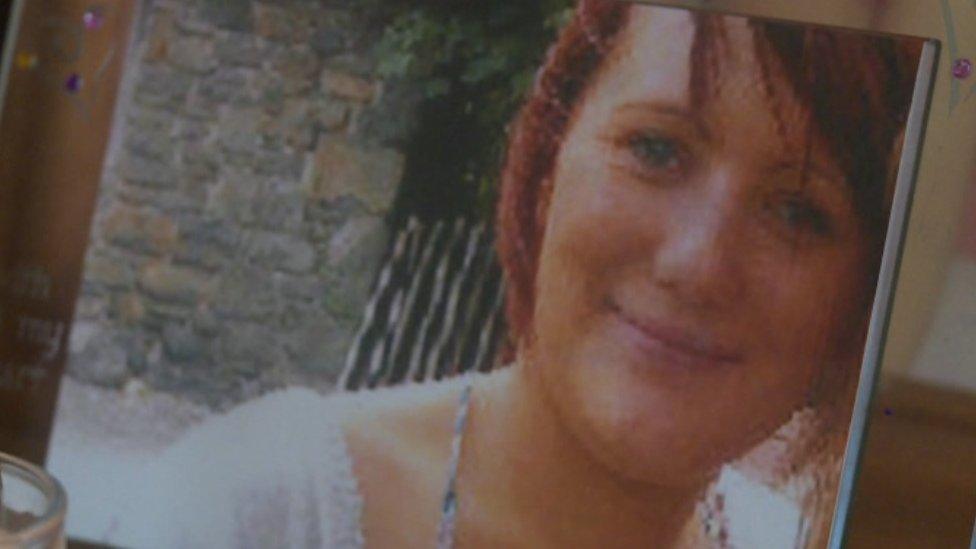
Williams carried out a brutal and fatal attack on Cerys Yemm
- Published5 April 2017
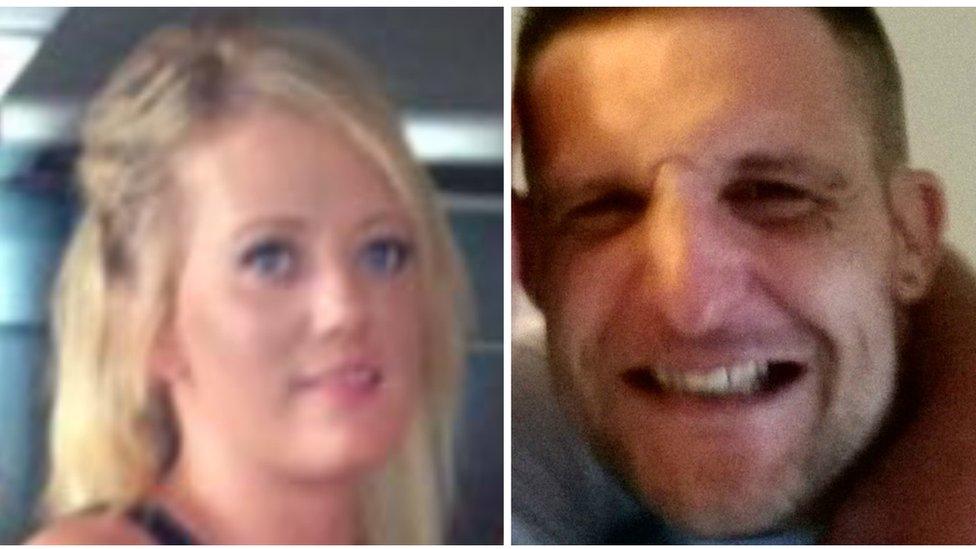
- Published15 March 2017

- Published16 March 2017
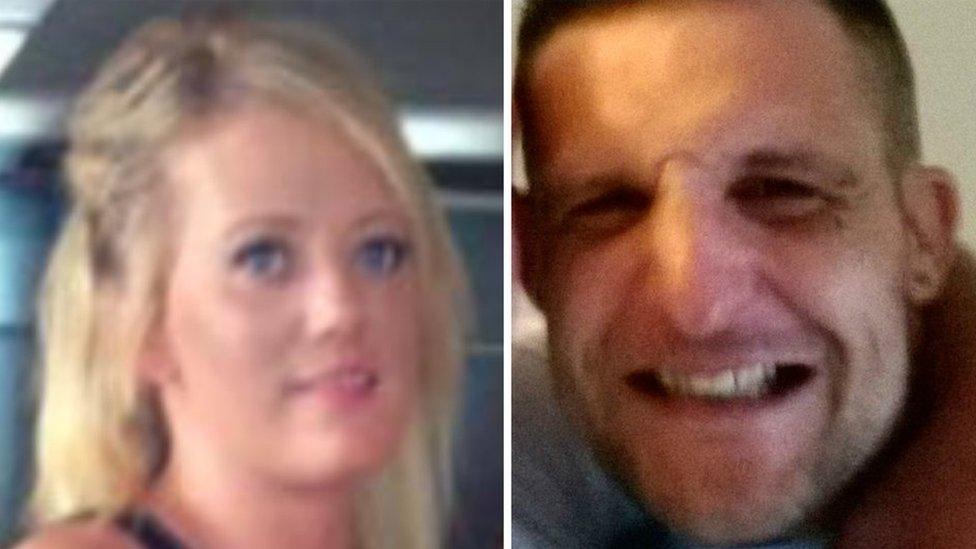
- Published17 March 2017
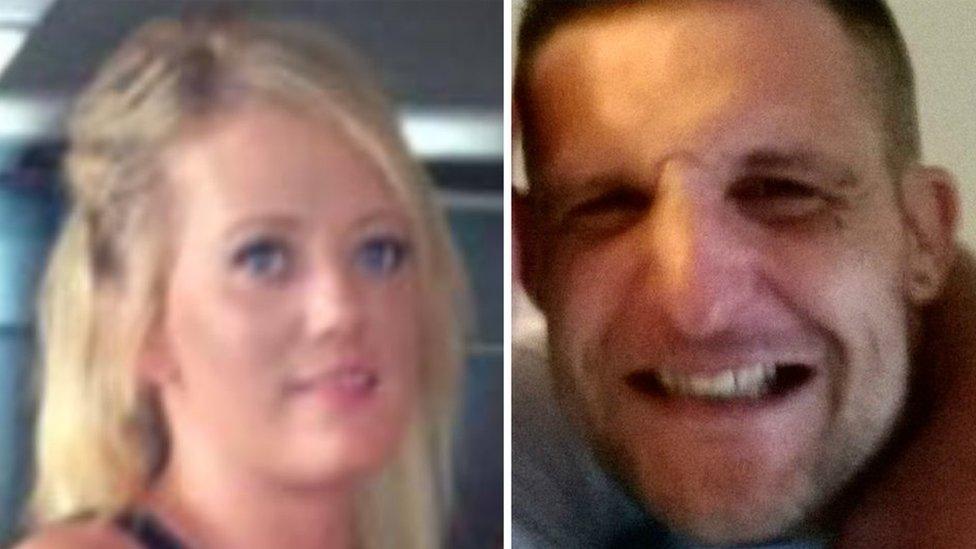
- Published24 March 2017
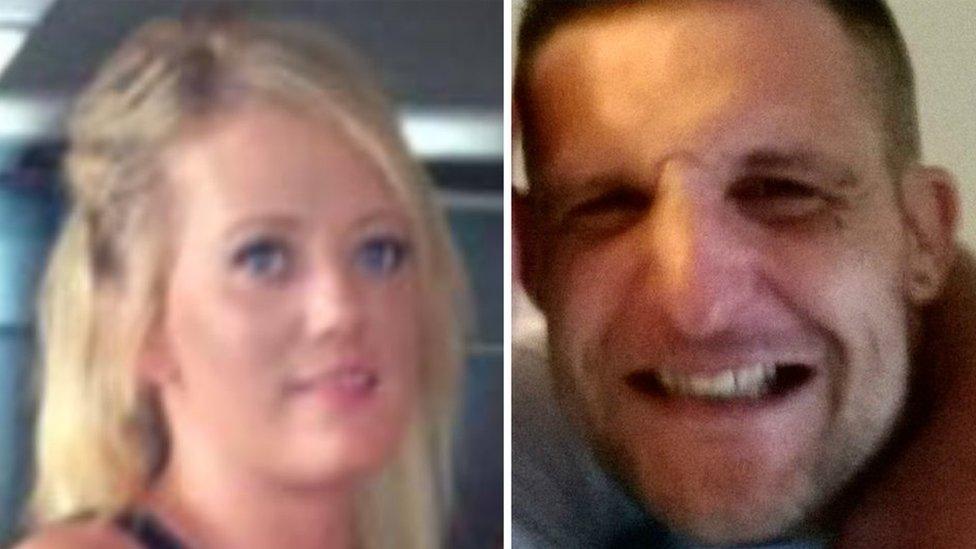
- Published27 March 2017

- Published28 March 2017

- Published3 April 2017
